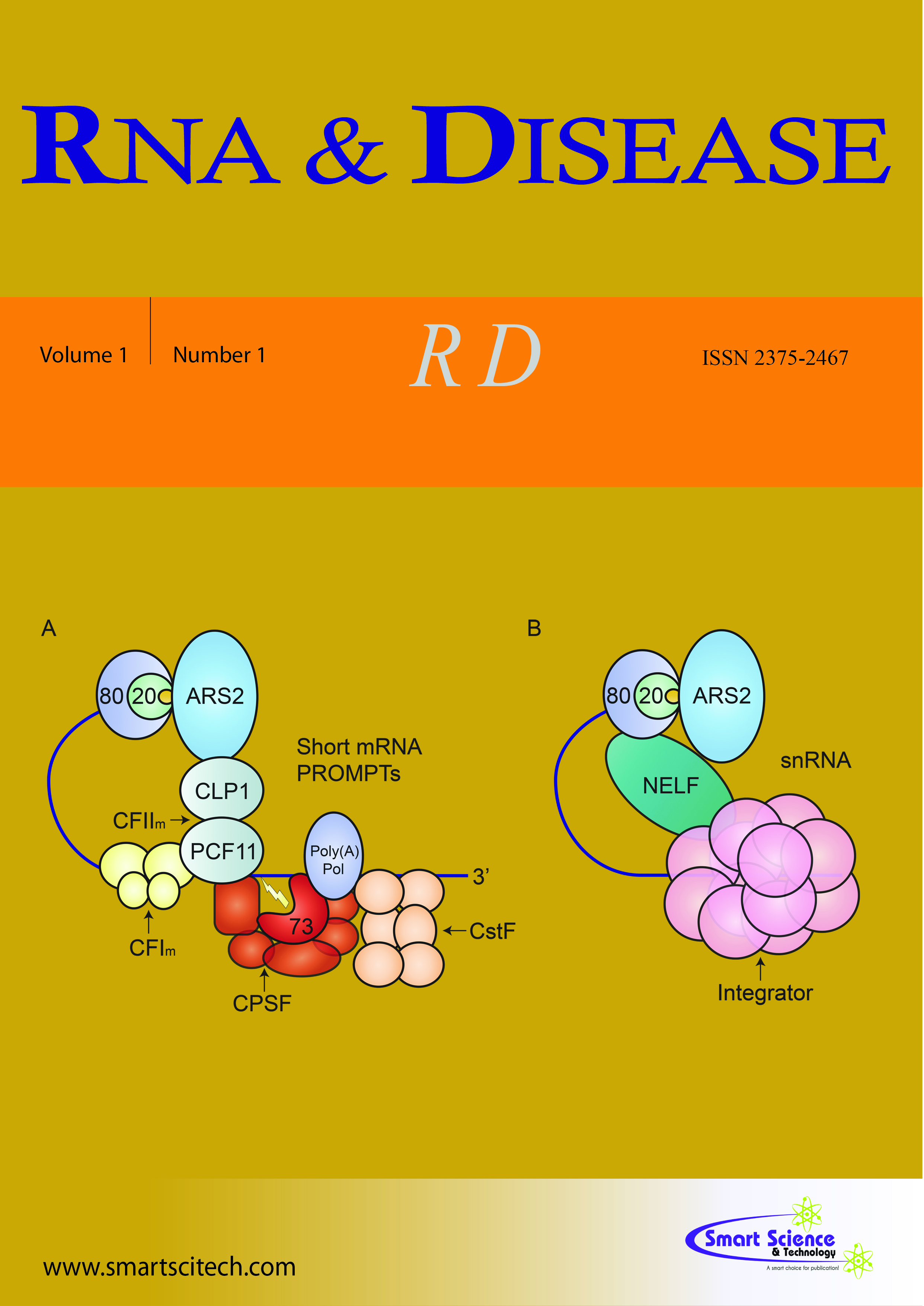Reciprocal Regulation among miR-181d/CRY2/FBXL3/c-myc Signaling Axis Modulates Metabolism in Colorectal Cancer
DOI: 10.14800/rd.161
Abstract
Patients with CRC (colorectal cancer) usually have a poor prognosis and the cure rate of CRC remained unsatisfied due to unfavorable curative effect. It is well known that microRNAs (miRNAs) and energy metabolism have pivotal roles in CRC progression. In a recent article in Cell Death & Disease by Xiaofeng Guo. et al. 2017, we have reported an oncogenic role of miR-181d in CRC by promoting glycolysis, and its underlying molecular mechanism about a new feedback loop among miR-181d/CRY2/FBXL3/c-myc signaling axis. Among these, we have identified the level of miR-181d was upregulated in CRC and the inhibition of miR-181d decreased glycolysis in CRC cells. We also found that c-myc played a central role in regulating cell glycolysis, which is required for the metabolic shift induced by miR-181d. Besides, we have demonstrated FBXL3 and CRY2 were direct targets of miR-181d and c-myc promoted miR-181d upregulation while inhibiting the expression of CRY2 and FBXL3 in CRC cells. The data from our recent article strongly suggest a new light onto the oncogenic function of the miR-181d in CRC. Furthermore, these findings represent a novel potential approach for silencing miR-181d/c-myc signaling pathway in CRC treatment.












